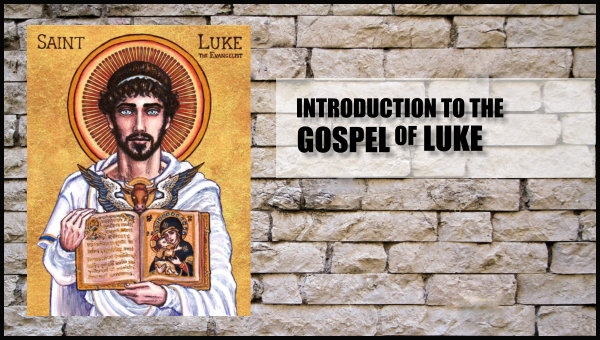By Tyson Thorne

This marks the start of a prolonged series on the Gospel of Luke. As we’ve already examined the book of Acts, it seems reasonable that the first Gospel we study should be Luke as both share a common author. Ask anyone to compare the gospels and two facts will almost always be mentioned: (1) that John is the Gospel of Love, and (2) that Luke is the Historical Gospel. While it is true that John gives us a look into Jesus’ personal struggles and relates stories not contained in any other gospel account, it is not true that Luke is purely a historical account.
This is not to say that Luke is not historically accurate, he is. Nor is it to say that it was not Luke’s intention to put down in writing an orderly account of Jesus’ life, it was. Rather it is to say that Luke did not provide us with a history only. Rather, Luke gives us the historical narrative alongside a personal and intimate look at the Savior. No other point makes this clearer than that Luke records more of Jesus’ personal prayers than any other gospel author — in all an astounding 33 references! Therefore, one must read Luke both as the historical account it is, but also as the cherished record of Jesus’ communion with His Father. Before we delve into this promising line of study, however, it is important to provide the historical background of this important work.
While Luke never names himself as author, preferring the use of “beloved physician” as title, early church fathers attributed this gospel to Luke. Being a doctor, Luke wrote a detailed and highly educated account of Jesus’ life. He wrote this Gospel for Gentiles, which no doubt is why he explains so many Jewish customs and traces Jesus’ lineage back to Adam rather than Abraham. Luke would have been written before Acts, likely around 58 to 60 AD.
Luke desired to set down an orderly, historical account for Theophilus, a Roman government official of significant rank, to whom he dedicates the book in the tradition of Hellenistic authors. Some have suggested that Theophilus, which means “beloved pupil” was a title indicating it was written to the Christian community rather than a person. However, Theophilus was also a popular name of the day (there is record of a high priest by this name who served from 37 to 41 AD). Furthermore, Luke uses an honorific title (Most Excellent) indicating this was a person and not a group of people.
There is one difficulty with this view, however. According to Roman law, the name of a crucified criminal was never to be spoken. It was for this reason the Jewish authorities wanted Jesus to have a Roman crucifixion rather than a Jewish stoning, and why those same authorities kept warning the apostles not to teach in “this name” (the name of Jesus) any longer. Further complicating matters, the first century up until about 80 AD marked a time of economic dislocation, cultural conflict and the centralizing of political administration to regulate trade channels. This lead to the confiscation of peasant lands and increasing taxes and a renewed stress of the importance of loyalty to the empire. For any official, Roman or Jewish, to request an orderly account of the life of Jesus and the actions of the apostles after his resurrection would be not only be against the law but considered an act of treason.
It may be that Theophilus was himself a believer and understood Jesus’ authority was greater than Rome’s. This would account for the risk he would be taking in requesting Luke’s writing of the account. This fits neatly with the book’s central theme (also called the Big Idea), that Jesus is the savior and rightful king of all people, everywhere.
Luke travelled often with the apostle Paul, as referenced in the book of Acts and in some of Paul’s letters. These journeys were primarily urban in nature, from city to city and it was in the cities among the young upwardly-mobile professionals that the message met with the greatest success. These were restless tradesmen who had lost their families and cultural identities in the thriving metropolises. In the words of Wayne Meeks:
“…it was in the cities of the Roman Empire that Christianity, though born in the village culture of Palestine, had its greatest success until well after the time of Constantine.” – Wayne Meeks, The First Urban Christians, 1983.
This was the world of Jesus and the early church.
|
|
